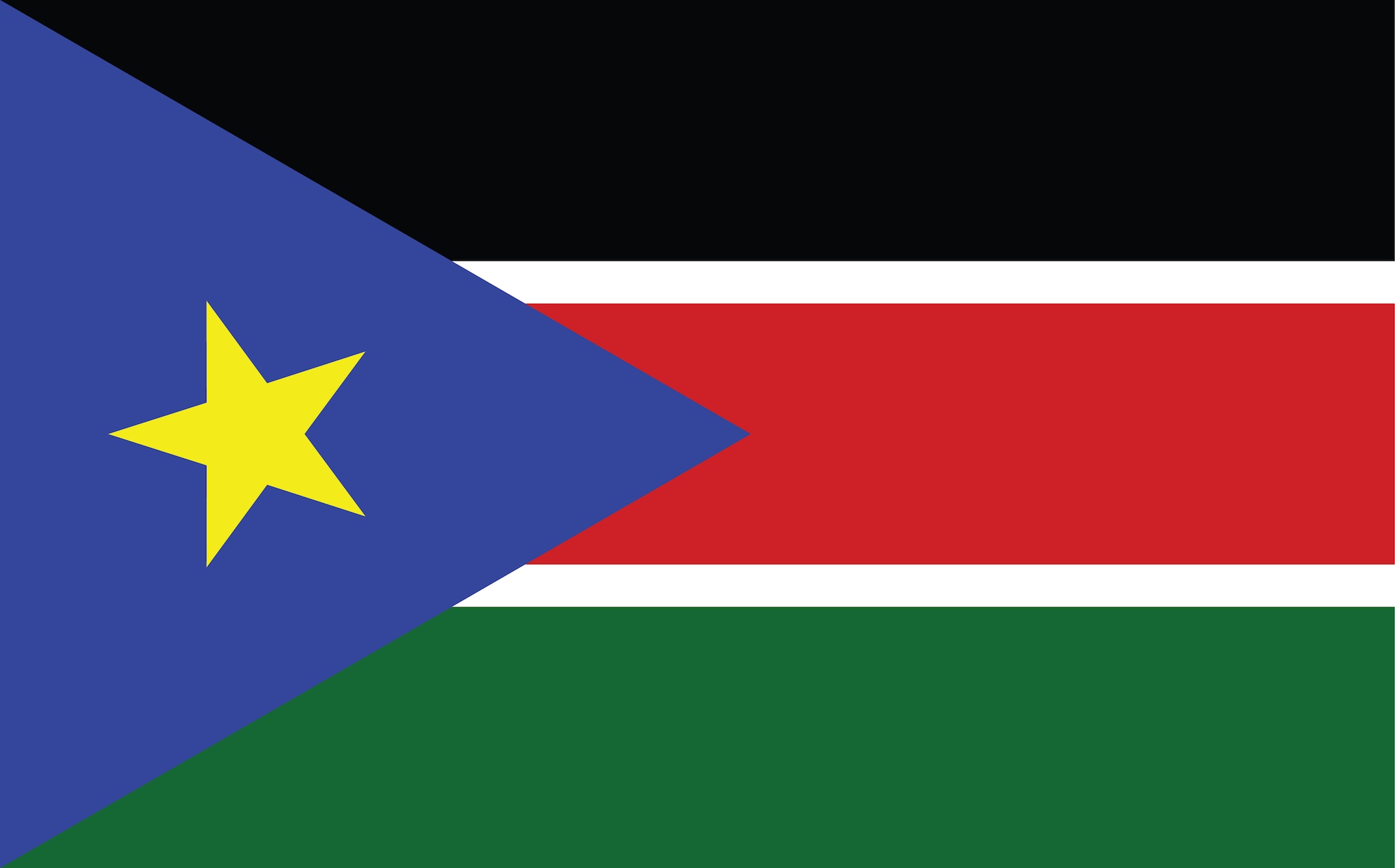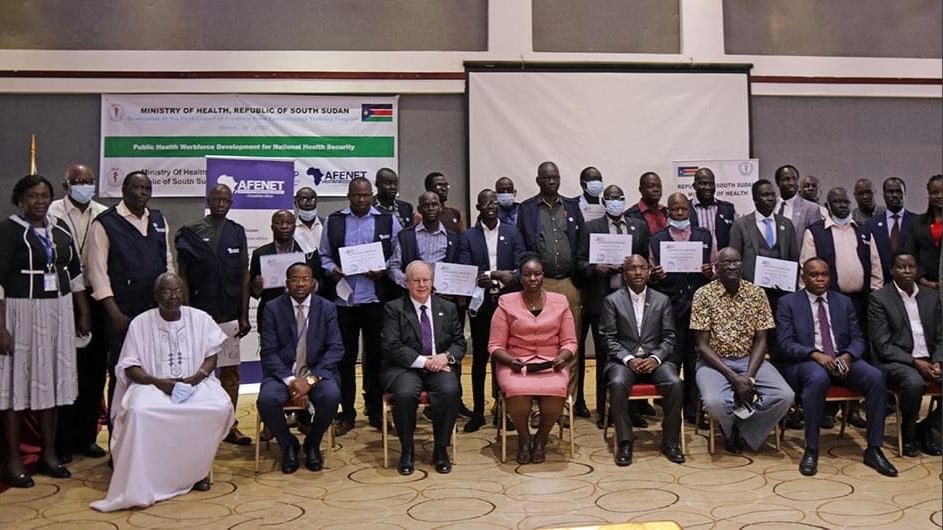At a glance
The U.S. Centers for Disease Control and Prevention (CDC) established its office in South Sudan in 2006, beginning with a primary focus on HIV prevention and control through the U.S. President’s Emergency Plan for AIDS Relief (PEPFAR). Since then, CDC has supported the delivery of lifesaving HIV services in 88 health facilities across five high-burden states (Central Equatoria, Western Equatoria, Eastern Equatoria, Lakes, and Northern Bahr el Ghazal), strengthened capacity of the National Public Health Laboratory to improve HIV diagnosis and treatment monitoring, and advanced national data systems and surveillance platforms. Through these efforts, CDC works to protect the health of Americans while supporting stronger, more resilient public health systems in South Sudan.

Key accomplishments
Provided Lifesaving HIV Services
In 2025, CDC-supported PEPFAR programs identified 6,381 new HIV cases, representing 45% of all new HIV diagnoses nationally. CDC also supported the uninterrupted provision of antiretroviral therapy (ART) for 49,238 people living with HIV (PLHIV) –accounting for 60% of all PLHIV on ART across South Sudan.
Enhanced HIV Surveillance
CDC supported data collection, analysis, and report development for the 2025 Antenatal Care (ANC) Sentinel Survey, producing critical insights into the national HIV epidemic that inform HIV epidemic control monitoring and strategic HIV service planning.
Sustained International Laboratory Accreditation
Supported efforts to maintain international accreditation of the National HIV Reference Laboratory for three consecutive years since initial accreditation in 2022.
Expanded Diagnostic Capacity
Established point-of-care (POC) early infant diagnosis (EID), viral load and TB testing laboratories across 54 health facilities and ensured over 80% of infant HIV samples collected reached the laboratory within 5 days for EID testing.
Enhanced Community-Based Service Delivery
Trained 280 community health workers, resulting in 45% of people living with HIV receiving their ART treatment at the community level in 2025.
Strengthened National Health Information Systems
Provided technical support to the national DHIS2 system, resulting in HIV program data completeness reporting of 99% in PEPFAR-supported facilities and 90% in non-PEPFAR-supported facilities. Established electronic ART register at five facilities.

Global health security
CDC partners with the Ministry of Health (MOH) to strengthen national disease surveillance, emergency preparedness, outbreak response, laboratory-based outbreak investigation, and data management systems.
Surveillance systems
CDC supports routine ANC sentinel survey data collection, analysis, reporting, and use of data in Spectrum HIV estimates providing essential information for monitoring HIV epidemic control and planning of HIV services.
Laboratory systems
CDC is the sole U.S. agency supporting national laboratory system activities in South Sudan which include strengthening EID/VL testing, integrated sample referral network, continuous quality improvement, HIV laboratory management information system, and development of national laboratory guidelines, standard operating procedures and tools for HIV and TB diagnostics and outbreaks investigation.
- CDC funded the HIV reference laboratory and 54 POC testing sites to conduct 40,280 viral load tests and 1,459 EID tests in 2025.
- Provided HIV rapid testing proficiency panels for 130 HIV testing sites.
- CDC supports laboratory quality management system through strengthening laboratory management towards accreditation (SLMTA) framework at five laboratories.
- CDC supports biosafety and biosecurity practices to meet ISO 15189:2022 standards.
Workforce development
CDC leverages Project Extension for Community Healthcare Outcomes (Project ECHO) to strengthen health care worker’s capacity in epidemiology, disease surveillance, diagnostics, treatment and case management, and prevention. Project ECHO currently serves as the primary platform for capacity building and continuing medical education for health care workers across PEPFAR-supported sites. In 2025, 44 ECHO training sessions were conducted with average of 236 participants per session.
Emergency response
CDC, in partnership with the MOH and other stakeholders, established South Sudan's first national Public Health Emergency Operations Center (PHEOC) in 2018. Since then, the PHEOC has led and coordinated outbreak responses and threats, including Ebola, Marburg virus disease, Cholera, Hepatitis E, and COVID-19. CDC also provides technical assistance to the MOH in surveillance, laboratory systems, border health, data management, and risk communication.
HIV and TB
As a key implementer of PEPFAR, CDC plays an essential role in the fight against HIV and TB. With strong scientific and technical knowledge and long-standing relationships with the MOH, CDC is well positioned to advance HIV, TB, and other global health security activities that keep Americans safe at home and abroad.
Through PEPFAR, CDC provides critical support to South Sudan’s public health infrastructure, improving the country’s ability to prevent, detect, and respond to HIV, TB, and other infectious diseases and minimizing their risk from entering the U.S.

![[thumbnail] (hidden)](/global-health/media/images/2026/01/South_Sudan_thumbnail.jpg)